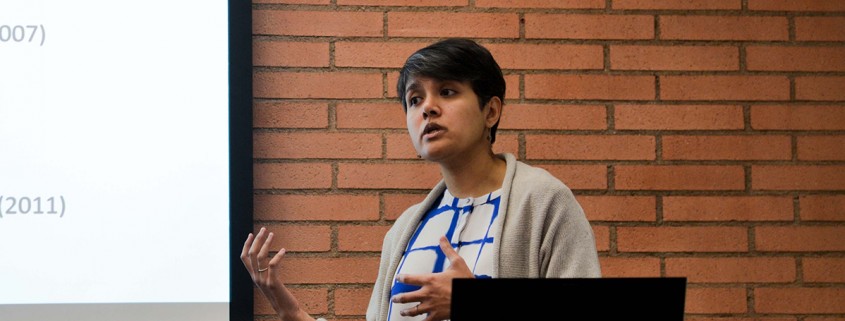Emory University professor presents research on authoritarian regimes
On Monday, USC’s Department of Political Science hosted Jennifer Gandhi, a professor of political science at Emory University, to present her latest research paper on authoritarian regimes.
Gandhi is one of the foremost experts in the field of elections under authoritarian regimes, and how authoritarian regimes can use multi-party elections to improve both their social and political capital.
“Authoritarian governments use a menu of manipulation to play at holding multi-party elections, all the while having no intention of giving up power,” Gandhi said in the preface to her lecture.
Her latest research focuses on how authoritarian regimes attempt to consolidate power into one ruling party in multi-party elections through the manipulation of electoral rules before an election. Most notably, this was the case with Russia and the 2016 election, which was moved from December to September, and saw the government very visibly switch the electoral system from a closed-list proportional representation to a mixed single-member district plurality, under which Russia operated from 1993 to 2003. This was the second such switch in electoral rules under President Vladimir Putin, who also presided over the switch from the mixed system in 2003 to a fully closed list proportional representation system right before the 2007 Duma, or general assembly, elections.
Professor Gandhi focused on how this change in rules, while beneficial for the ruling party to consolidate its power and gain supermajorities in the legislative bodies of autocracies, can actually create “potential losers” within the ruling party. This refers to members of the ruling party who won their seats through the single-member district plurality system, which involved direct election from small, regional districts, now having to compete in the larger, less regional districts of the fully closed-list proportional system to which Russia switched over in 2007. These incumbents have a higher chance of losing their seats, which can lead to a disgruntled class of displaced elites that provide a real and tangible danger to the autocrat’s power and control over the nation.
“Changes in the electoral rules can increase aggregate gains but also alienate some individual members [of the ruling party],” Gandhi said.
She showed the electoral data from the switch of Russian electoral systems from 2003 to 2007.
The argument that Professor Gandhi made is that, in order to both consolidate power and keep elites happy in authoritarian regimes, dictators must manage the tension of “prospective losers” by compensating them with political appointments or an electoral boost.
However, according to Gandhi, the autocrat runs into problems, since the appointed positions are presumably already occupied by party cronies or other elites that the autocrat wishes to keep content. Thus, in order to accommodate everyone, new positions must be created, expanding the bureaucratic system of the autocratic nation.
“Autocrats expand the pie to compensate potential losers,” said about Gandhi explained her research’s most important concept, providing a series of statistics to show how cabinets and appointed positions increase in autocratic societies following an electoral rule change.

